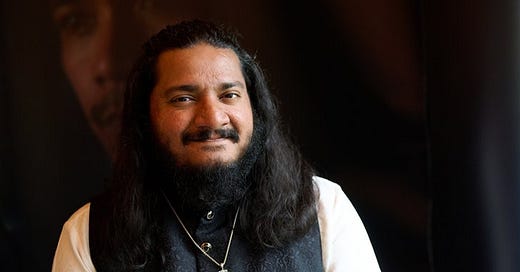My Statement At The Evangelical Theological Society
On The State of Indian and Canadian Evangelicalism
Context: I was supposed to be in San Diego speaking at the Evangelical Theological Society’s (ETS) Christianity and Culture Panel yesterday, presenting on Indian and Canadian Evangelicalism. ETS is the top academic conference for American evangelical theologians and academics. Unfortunately, because of Canadian work permit renewal delays, I’m unable to leave the country this month. Thankfully, Dr. Kreider, the moderator of this panel and one of my favourite former professors at Dallas Theological Seminary, generously offered to read my statement at ETS. I’m told this was well received by the audience who found this both challenging and thought-provoking.
As some of the content here is sensitive, only paid subscribers will be able to read this full post. Consider becoming a paid subscriber today to read this full post and directly support my ordination costs. Here’s what I shared with the good folks at ETS:
I’d like to think that the perspective I offer to you is a unique one. I speak as someone born and raised in the Indian Evangelical Church, who later immigrated to the US and led in various capacities in the US Evangelical Church for a decade, before moving to Canada in 2021 to mobilize Canadian evangelicals to partner with the Global South Church in holistically proclaiming the Gospel of Jesus of Nazareth to victims of human trafficking and violence waiting for physical liberation.
Let me first speak to Indian Evangelicalism by way of three main observations:
1. Indian Evangelicalism is heavily influenced by American Evangelicalism: In 2010, I was sent as a delegate of the Union of Evangelical Students in India (UESI) to the Fellowship of Evangelical Students (FES) in Singapore’s national conference. As a 17 year old evangelical student leader at one of India’s top universities, UESI, the Indian affiliate of the International Fellowship of Evangelical Students sent me to observe how our sister evangelical student movement in Singapore did campus ministry – so that I could return with learnings and recommendations. One of my biggest takeaways from that trip was FES’ heart for migrant workers in Singapore (one of the richest countries in Asia) who were often exploited for their labor with unjust employment practices. For context - this was right after the Third Lausanne Congress on World Evangelization’s Cape Town Commitment – a Global Evangelical Church commitment to double down on social justice as an expression of the Gospel of Jesus of Nazareth. And this passion for justice was now being contextualized by evangelical leaders in Singapore within their own contexts (despite Singapore being one of the richest countries in the world). 17-year old Joash came back from this Singapore evangelical students’ national conference asking why its sister movement in India was not contextualizing the Gospel for the work of justice as much as our Singaporean siblings in Christ were – especially given our context’s many justice needs.
I kept wrestling with this question even after leaving India in 2011 - until a visit back to India in 2019 when I had the chance to return to the largest Christian bookstore in a major Indian city. Two-thirds of this Indian Christian bookstore was filled with writings from white male American evangelical authors. And around half the bookstore was filled with books from just one American author – John MacArthur. Regardless of what you may think of MacArthur, I think we can all agree that Indian evangelicals should be exposed to more contextualized theology from other Indian evangelicals who wrestle with the same challenges in embodying the Gospel in the Indian context. And I think we can all agree that we all have something to learn from each other in the Global Evangelical movement because the Global Evangelical movement has way more diversity than what was represented at that Indian Christian bookstore. We miss out when we only learn from one category of the Global Evangelical movement – especially one that is prone to elevate spiritual salvation work over physical justice needs – even though meeting physical justice needs is often seen as important. My Indian American evangelical friends at the recent Lausanne World Congress in South Korea who attended both South Asian and North American evangelical gatherings tell me that the North American Lausanne gatherings seemed to be very individual spirituality focused whereas the South Asian gatherings seemed to focus more on the Gospel’s emphasis on justice and reconciliation.
2. Indian Evangelicals are fairly pluralistic: While Indian Evangelicals are by no means a monolith and while Indian Evangelicals are unashamed of the Gospel of Christ (even in the face of persecution), I have found Indian Evangelicals to be fairly pluralistic. Despite deeply desiring for their neighbors to know Christ, Indian Evangelicals strive to live at peace with their Hindu, Muslim, Sikh, Buddhist, and Jain neighbors. They celebrate religious festivals such as Diwali, Holi, and Eid with their non-Christian neighbors as much as they can while holding to boundaries such as not resorting to idol worship or eating food offered to idols. Indian Evangelicals also take advantage of these other religious festivals to bless their underprivileged neighbors to bear witness to Christ’s ever-present love in these festive seasons.
3. Indian Evangelicals tend to be left-leaning and skeptical of capitalism:
Keep reading with a 7-day free trial
Subscribe to Jesus, Justice & Joash to keep reading this post and get 7 days of free access to the full post archives.



